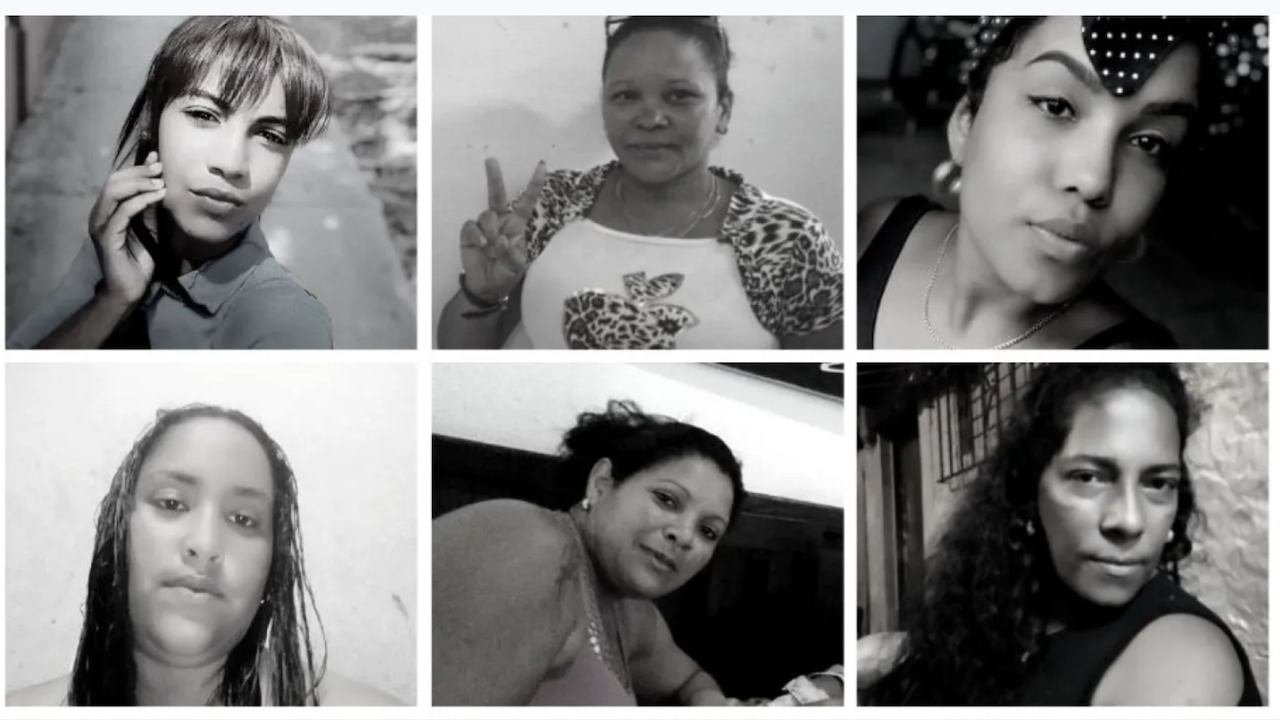At least 116 women are currently serving prison terms in Cuba for political reasons, according to a list compiled by various non-governmental human rights organizations: Sissi Abascal, Aimara Nieto, Reyna Yacnara Barreto Batista, Arianna López Roque, Donaida Pérez Paseiro, Lizandra Góngora Espinosa and the Garrido sisters, are some of the names appearing on the list.
The list was drawn up thanks to collaboration between the Cubalex legal information center and Prisoners Defenders, Justicia 11-J and the Cuban Human Rights Observatory. According to Cubalex, the goal is to shine a light on "the situation of women deprived of their freedom for political reasons."
The organization argued that most of the women on the list are serving time for demonstrating peacefully during the July 11, 2021 protests.
"At Cubalex we have repeatedly condemned the fact that the greatest manifestation of gender violence in the Cuban context is by the government, and this is explicitly demonstrated with the update of the list of women deprived of their freedom for political reasons," Cubalex lawyer Alain Espinosa told Martí Noticias.
"In all the cases, the incarceration is due to discrimination on the basis of political opinion, and was preceded by a set of serious human rights violations, including physical and psychological torture, sexual harassment, attacks on privacy and dignity; in some cases even aggravated by factors such as race or gender," Espinosa said.
"They are victims of vicarious violence as a method of social control, and to have an inhibitory effect on their relatives," he added.
Yanelys Núñez, a Cuban exile in Spain who is part of the Gender Observatory attached to the feminist magazine Alas Tensas, pointed out that, although this phenomenon is nothing new, it must be mentioned because it is necessary "to debunk the notion, exported by the regime, that in Cuba there are no political prisoners."
"Responsible follow-up, through families, on what is happening inside the prisons, is important, so that we don't lose sight of the people who have spoken out and made a huge sacrifice for freedom and democracy in Cuba," insisted the activist, who has participated several marches in Madrid in support of the release of Cuban political prisoners, with an emphasis on women.
According to Núñez, this is important work so that women in prison are not forgotten, and to raise awareness of the violation of their human rights and the mistreatment to which they are subjected.
The Alas Tensas magazine pointed out, in a post on its Facebook page, that the list "constitutes an enormous collective effort" made "in a context of repression, threats and constant human rights violations in Cuba." "Several independent observers have acted to bring together, in one place, the names of the female Cuban political prisoners who are currently serving sentences," the statement added.
From prison, these women have protested about the terrible conditions in which they languish, in addition to joining civil society initiatives, for which they have received punishments. This is the case, for example, of political prisoner Lizandra Góngora. From prison, she expressed her concern regarding the "critical" situation suffered today by Unión Patriótica de Cuba leader José Daniel Ferrer, who is being held at the Mar Verde penitentiary in Santiago de Cuba.
"Today I'm recording this audio to touch the hearts of all Cubans, inside and outside the country, of all those Cubans who have had to suffer and endure, for sixty-four years, this illegal and corrupt dictatorship," said Góngora in material released by her husband, Ángel Delgado, after a call he received from her last Monday.
The 37-year-old activist, a member of the Republican Party of Cuba and a mother of five minor children, is serving her 14-year prison sentence, the longest among all the women prosecuted for the events of 11-J.
The struggle by Cuban activists for the release of political prisoners continues to garner international support. U.S. Assistant Secretary of State for Western Hemisphere Affairs Brian A. Nichols noted on his official Twitter account: "A year ago, the Cuban government sentenced Latin Grammy-winning rapper Maykel 'Osorbo' Castillo and artist Luis Manuel Otero Alcántara to 5 and 9 years in prison, respectively."
"Cuban officials cannot claim to respect the arts while imprisoning peaceful artists. It's time to release them," Brian A. Nichols tweeted.
